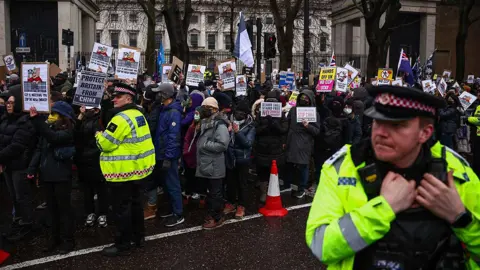London Faces a Double Challenge: Beijing Threatens Security but is Essential for the Economy

The government of British Prime Minister Keir Starmer finds itself in a complex dilemma combining national security and economic reliance on China, facing a clear conflict of interests that threatens the political and economic stability of the United Kingdom.
Security Pressures and Intelligence Challenges
British intelligence agencies, including MI5 and GCHQ, classify China as the largest state-based threat to British security. Suspected Chinese activities, from cyber espionage to attempts to access critical digital infrastructure, make any dealings with Beijing fraught with risk.
The controversy over dropping the recent espionage case, in which the government requested not to charge two men accused of espionage, highlighted the contradiction between security warnings and political and economic considerations, and sparked widespread criticism from Conservative MPs who see it as an unjustified leniency towards Beijing.
Economy: Reliance on a Strategic Partner
Despite the risks, China remains Britain's fifth largest trading partner, with total exchanges reaching about £100 billion annually, and Chinese imports account for more than 70% of this total, especially in the telecommunications and machinery sectors. Any security escalation could significantly cost the British economy, while China relies on the British financial system and banking markets. These mutual interests compel London to exercise caution in any decisive steps against Beijing.
The Chinese Embassy: A Symbol of Tension and Future Challenges
The project to build a massive Chinese diplomatic complex in London, which has been repeatedly delayed, has become a new point of tension between the two countries. British security agencies fear that the building could turn into a center for surveillance and espionage, allowing Beijing access to critical digital infrastructure. It is also believed that Beijing linked approval of the project to allowing the reconstruction of the British embassy in China, in a form of mutual pressure that reflects China's economic and political power strategy.
The Strategic Dilemma
Successive British governments have always tried to balance benefiting from the Chinese market and protecting national security. While David Cameron's era described cooperation with Beijing as a golden age, Theresa May and Boris Johnson attempted to maintain a "positive and productive" relationship, yet concerns over espionage, cyberattacks, and human rights violations have made the relationship characterized by severe anxiety.